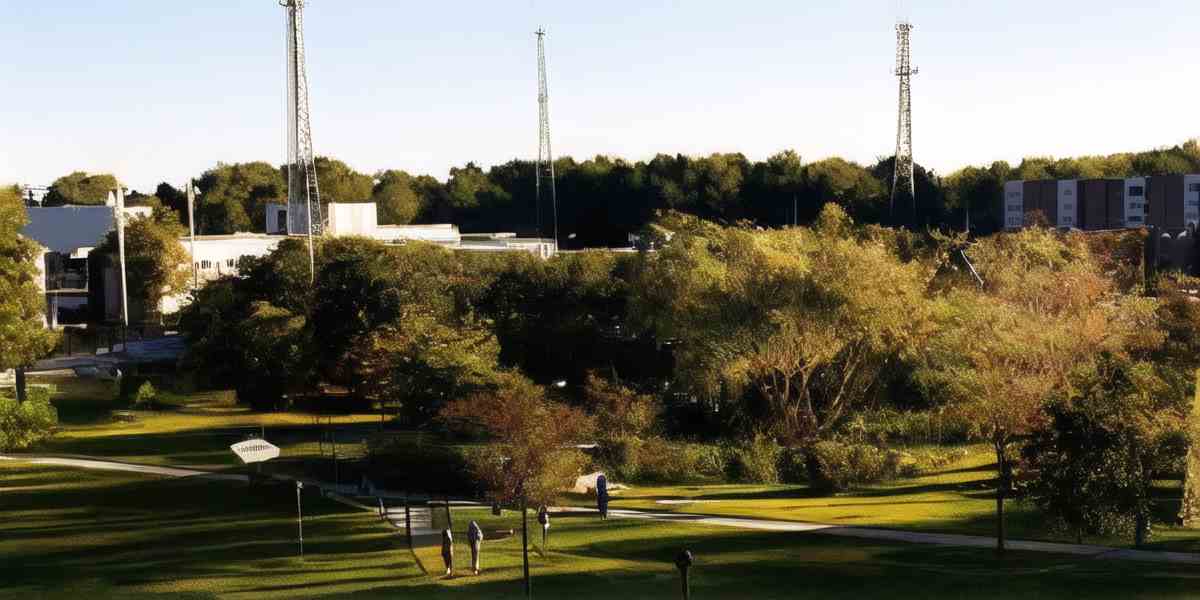Capitol Technology University
2024 USNews Best Colleges Ranking: 395(↓64) (Click for schools/majors ranking)
School Characteristics: Private, non-Profit (4-Years)
Calendar systerm: Semester
Religious Affiliation: Not applicable
School Chief: Bradford (Sims)
Website: www.captechu.edu/; Phone: 3013692800
Location: 11301 Springfield Rd, Laurel, MD, 20708

Capitol Technology University Important Facts
| In-state Tuition | $27,004 |
Out-of-state Tuition | $27,004 |
| Room and Board | $12,816 | Under Students | 301 |
| Graduation Rate | 25.0% | Retension Rate | 72.5% |
| Student-Facuty Ratio | 9:1 | Men-Women Ratio | 79:21 |
| Athletic Association | 无 | ||
Capitol Technology University Degrees and Majors
Capitol Technology University Ranking and Admission
Capitol Technology University Admission Score Requires
*Numbers at left represent SAT/ACT submitting percentage, numbers on blue blocks represent 25%-75% admission scores
**Drag green block to check data for different years, click blue block to check scores trends
Capitol Technology University Students Diversity
Capitol Technology University Students Age Distribution
Capitol Technology University International Students Trends
Capitol Technology University Campus and Safety
Nearby Top Colleges
Campus Safety
Reference
- Capitol Technology University Official Website
- USNews Best Colleges Ranking
- USNews Bset Global Universities Ranking
- THE World University Ranking
- QS World University Ranking
- ARWU World University Ranking
- US Department of Education College Scorecard
- National Center for Education Statistics
- Forward Pathway US College Ranking Database
 Capitol Technology University Important Facts Trends
Capitol Technology University Important Facts Trends
 Capitol Technology University degrees/majors
Capitol Technology University degrees/majors
Capitol Technology University major details
*Depends on whether majors have graduates in 2022 or not, Yes / No
**Move mouse on can check deitaled graudates number, click for major detailed information
***Due to privacy policy, graduate salaries are not shown for some majors that has few gradautes
| Major | Graduate Salary | Under | Master | Doctor |
|---|---|---|---|---|
| Computer and Information Sciences, General. | - | |||
| Artificial Intelligence. | - | |||
| Information Technology. | - | |||
| Human-Centered Technology Design. | - | |||
| Computer Programming/Programmer, General. | - | |||
| Computer and Information Systems Security/Auditing/Information Assurance. | - |
| Major | Graduate Salary | Under | Master | Doctor |
|---|---|---|---|---|
| Aerospace, Aeronautical, and Astronautical/Space Engineering, General. | - | |||
| Computer Engineering, General. | - | |||
| Electrical and Electronics Engineering. | - | |||
| Mechatronics, Robotics, and Automation Engineering. | - |
| Major | Graduate Salary | Under | Master | Doctor |
|---|---|---|---|---|
| Business Administration and Management, General. | - | |||
| Operations Management and Supervision. | - | |||
| Management Science. | - | |||
| Business Statistics. | - | |||
| Construction Management, General. | - | |||
| Business, Management, Marketing, and Related Support Services, Other. | - |
| Major | Graduate Salary | Under | Master | Doctor |
|---|---|---|---|---|
| Multi-/Interdisciplinary Studies, Other. | - |
| Major | Graduate Salary | Under | Master | Doctor |
|---|---|---|---|---|
| Critical Infrastructure Protection. | - | |||
| Homeland Security, Law Enforcement, Firefighting and Related Protective Services, Other. | - |
| Major | Graduate Salary | Under | Master | Doctor |
|---|---|---|---|---|
| Computer Engineering Technology/Technician. | - | |||
| Engineering/Engineering-Related Technologies/Technicians, Other. | - |
| Major | Graduate Salary | Under | Master | Doctor |
|---|---|---|---|---|
| Aviation/Airway Management and Operations. | - |
 Capitol Technology University Schools/Majors Ranking
Capitol Technology University Schools/Majors Ranking
Under Ranking (2024)
Grad Ranking (2025)
- No Ranking
*Rankings have been updated to 2025USNews schools/majors ranking, rankings are for reference only
*numbers in bracket represent rankings change compare to last version
 Capitol Technology University Varsity Athletes
Capitol Technology University Varsity Athletes
| MEN | WOMEN |
|---|
| MEN | WOMEN |
|---|
| MEN | WOMEN |
|---|

 Capitol Technology University Important Facts Trends
Capitol Technology University Important Facts Trends
















































































































































































































































































































































































































































